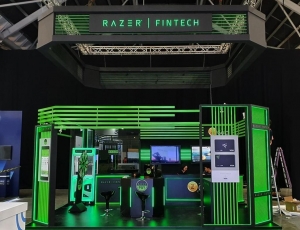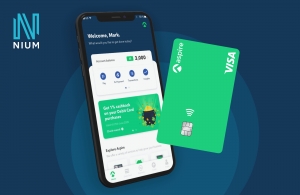Asia Payments Research
Is Razer’s fintech foray ailing?
Not every tech company is cut out to be a fintech. Even the super apps that have bet everything on a fintech transformation will agree with that statement: They just will insist their particular business model is a winner. Not gaming hardware maker Razer though. The Hong Kong-listed firm is the latest non-financial company to have second thoughts about a fintech foray, pulling the plug on its Razer Pay e-wallet and card after failing to win a digital bank license in Singapore.
Nium reaches unicorn status
Move over Grab and GoTo: There is a new Southeast Asian unicorn in town. The rapid ascendancy of Singapore-based payments startup Nium, which reached a US$1 billion valuation following a Series D round that raised more than US$200 million, shows that there is more to Southeast Asian tech than consumer-oriented super apps.
Unpacking Square’s US$29 billion acquisition of Afterpay
Just when buy now, pay later (BNPL) had seemingly reached an apex in Australia, Jack Dorsey’s Square buys Afterpay for US$29 billion, the largest M&A deal in Australian history. Anyone who thought Afterpay would be easily surpassed by deep-pocketed global payments giants like PayPal or Australia’s own banking heavyweights will have to think again.
PayPal steps up its APAC play
Big Tech increasly has its eyes on Asia-Pacific’s growing fintech market. Yet most of the US tech giants are off to a late start in the region. Although it has been present in numerous APAC markets for years, PayPal is not really an exception to the rule. The U.S. payments giant has historically focused on North America and to a lesser extent Europe, with only a minor footprint in APAC. That is changing now that PayPal has super app ambitions and sees new opportunities in China, Southeast Asia and Australia.
Why are BNPL firms foraying into banking?
Australia’s Afterpay is making the jump from payments into banking as it seeks to develop new revenue streams amid intensifying competition in its core buy now, pay later (BNPL) business. Afterpay said on July 20 that it would launch its banking app, Afterpay Money, in October. The move into banking has a hint of irony to it, coming on the heels of the recent entry of several incumbent banking giants - such as Citibank and Commonwealth Wealth Bank of Australia – into Australia’s BNPL segment. Afterpay is the only BNPL firm besides Klarna to segue into banking.
Zip has been one of the biggest Australian buy now pay later (BNPL) success stories, second only to Afterpay. Zip, Afterpay and others have been so successful that other financial firms are hopping on the BNPL bandwagon, from PayPal to incumbent lenders like Commonwealth Bank. As the market grows more crowded and restrictive regulations loom, Zip is looking to expand overseas, including Canada, Europe and Southeast Asia.
Long lauded for its outstanding pandemic control, and accustomed to no community transmission, Taiwan is now fighting a truculent coronavirus outbreak that is averaging about 300 cases a day. As a result, Taiwan is in a quasi-lockdown state for the first time since the pandemic began. With the government telling people to stay inside and avoid face-to-face contact, this could be a turning point for cashless payments in Taiwan.
Taiwan’s two top e-wallets, Jkopay and Line Pay, have grown exponentially in terms of transaction volume in recent years yet have failed to turn a profit. Data compiled by Taiwan’s Chinese-language Business Next show that Jkopay lost about NT$346 million, slightly less than the NT$347 million in losses a year earlier. Line Pay likely lost NT$424 million in 2020, up nearly 70% year-on-year.
Gojek steps up its super app play
Ride-hailing giant Gojek is stepping up its super app play with new fundraising and the purchase of a stake in Indonesian conglomerate Lippo’s retail unit, MPPA. Earlier in May, Indonesian celluar operator Telkomsel, a subsidiary of state-owned communications giant PT Telkom Indonesia, said it would invest an additional US$300 million in Gojek. Shortly thereafter, a filing on the Indonesian Stock Exchange revealed that Gojek paid 144.85 billion rupiah (US$10.2 million) for a 4.76% stake in MPPA.
PayNow and PromptPay linkage goes live
Singapore and Thailand have made cross-border payments history with the linkage of their respective real-time retail payment systems, PayNow and PromptPay. The linkage is the first of its kind in not just Asia but the world and comes after several years of close collaboration between the Monetary Authority of Singapore (MAS) and Bank of Thailand (BoT).
More...
Indian payments unicorn Razorpay has grown exponentially during the pandemic as the subcontinent accelerates its transition to online shopping and digital finance. In the six months since it hit unicorn status, Razorpay has seen its valuation treble to US$3 billion. The Bangalore-based firm will use the US$160 million it raised in its latest fundraising round – in which Sequoia Capital India and Singapore’s sovereign fund GIC Pte participated – to fund expansion in Southeast Asia and develop new product lines. With this latest round of funding, Razorpay has raised US$366.5 million.
Is something awry at Airwallex?
In the world of fintech unicorns, a bit of exaggeration comes with the territory. After all, we are talking about companies valued in the billions or tens of billions of US dollars, despite failing to make a profit (in most cases). This is a world where what counts is not the shaky balance sheet today, but the supposed potential to revolutionize banking tomorrow. Growth is paramount – that’s how to keep the funding spigot on. But this approach to financial services comes with manifold risks. Possible compliance deficiencies at Australia’s Airwallex illustrate this point.
BNPL competition in Southeast Asia heats up
The buy now, pay later frenzy is moving from the advanced economies into emerging markets with Southeast Asia a hotspot. Given the rapid growth of fintech in the region and lack of credit card penetration in most countries it is relatively easy for BNPL to make inroads. In fact, BNPL is proving so popular that the segment is growing fast in Singapore too, where credit card penetration is 73%.
Airwallex reaches for the stars
Nobody can accuse Airwallex of having modest ambitions. The Australia-founded and Hong Kong-based unicorn just raised another US$100 million in an extended Series D round at a valuation of US$2.6 billion. The U.S.'s Greenoaks was the lead investor. The cross-border payments upstart plans to use the capital injection to expand across four continents - Australia, North America, Europe and Asia.













